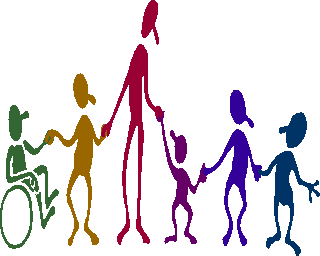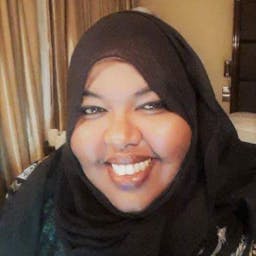The Value of Educating Children With Disabilities in Somalia
Jan 21, 2015
Story

Although reliable statistics are hard to come by, at least several thousand children with physical or psychological disabilities are estimated to live in Puntland, Somalia. Many of them are in urgent need of special education or are excluded from the educational system altogether. However, local education officials, NGOs and schools lack the technical and financial capacity to adequately work on special-needs education. While measures are being put in place, they must go even further if they are to be effective.
Globally, the World Health Organisation estimates that 10% of the world’s population have disabilities. If we add the prospects of civil war and extreme poverty, that figure could rise up to as much as 12-15% or more.
In Somalia, these statistics are painfully evident. The country remains one of the worst and most alarming humanitarian crises in the world. UNHCR estimates that 1.5 million people are displaced within the country, many in areas inaccessible to humanitarian workers. The recent civil war resulted in many Somali civilians losing their sight and/or suffering horrific injuries often caused by landmines or other explosives. In 2010, at least 7,600 people reported weapons-related injuries in the capital of Mogadishu alone, an average of more than 20 a day. One in five injured was a child (UNHCR Global Report 2010). Of course, too, access to other basic services such as health or social services remain a challenge, and thus a situation of isolation, poverty and unemployment is inevitable.
In order for any significant intervention to bear fruit, the following must be considered. First, the Somali culture, including the attitudes and perceptions of people towards disability, must be well understood. Some families see disability as a curse or punishment from God and opt to keep their disabled children indoors. Others don’t see the benefits of education for their disabled daughter. On the contrary, they argue that the health of the disabled child will only further deteriorate. This is mainly due to widespread fear related to insecurity; girls’ with disabilities are more vulnerable to be taken advantage of and as a result parents keep them at home where it is safer. Girls living with disabilities are further marginalized by communities because their special needs are not well understood nor met, and they are not given the opportunity to contribute to society.
Despite the challenges, there are ways children with disabilities can be integrated into the educational system.
All over Somalia, for instance, children between two and three years old are placed in informal, privately-owned education institutions known as dugsi (school). They are taught how to read and write the Holly Koran in an Arabic script. The school's moalim (teacher) is typically the one who identifies early on if a child has speech or learning difficulties. The Ministry of Education and donors should work more closely with these moalims as they play a crucial role in the early years of children, and have a strong link with parents and the community.
Lobbying and grassroots advocacy could also raise awareness not only in Puntland, but throughout Somalia. The Ministry of Education, education stakeholders and local NGOs should give priority to children with disabilities to get education while also improving access to schools and hospitals. People's attitudes, lack of public awareness and sensitisation are the real barriers to the development of these children -- not their impairments.
Local and international education officials working in Puntland must take a more active and well-coordinated role in providing "Inclusive Education" for all children in the area. Education providers, including the Ministry, should offer quality education for all children by improving the capacity of the education system to respond flexibly and creatively to the individual needs of the children, through teacher training, learning aids and other measures.
The most important lesson I have learned as someone working in the education sector is listening to the concerns, wishes, voices, and needs of families and community members. This builds trust and relationships, and ingrains an even better sense of responsibility for the benefit and welfare of girls.
Children with disabilities can contribute productively to society and lead independent lives, if they are given the opportunity. Let's give them the opportunity.
This article is part of a writing assignment for Voices of Our Future a program of World Pulse that provides rigorous new media and citizen journalism training for grassroots women leaders. World Pulse lifts and unites the voices of women from some of the most unheard regions of the world.




